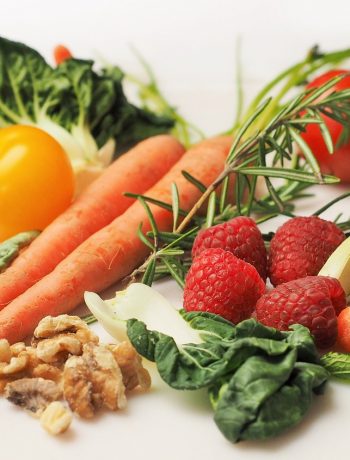This post contains affiliate links, which means I may earn some money if you click on one. Don't worry, there is no additional cost to you. Thank you for supporting my blog.
A mother’s diet is very important when nursing. In the first few years of life a baby is still developing; the brain and immune system is not mature yet. What mom puts into her mouth can have a lasting impact on her baby if she is breastfeeding.
Please don’t let the thought of this intimidate you. It is actually a wonderful blessing to be able to nourish your child by breastfeeding. There are many short term and long term benefits for your child’s health.
I am very passionate about breastfeeding, and I hope this article helps a few moms succeed in nourishing their babies the “natural way”.
First, remember that you are providing nutrition for your baby. The more nutritionally dense your food is, the more nutrients your baby will receive. My breastfeeding diet is very similar to my pregnancy diet. Here is a summary of some of some of the foods I eat … (I am not a nutritionist, and this is not medical advice. I am just sharing my personal experience).
Free range organic eggs – I eat an omelet for breakfast almost every day. Eggs are very nutritious. I don’t worry about the cholesterol in the yolks, the yolks are the most nutritious part!! I eat the best quality eggs I can find because they contain more nutrients than industrial eggs, and no antibiotics. So yes, the cost is more, but you get more bang for your buck.
Healthy fats – Contrary to popular opinion, fat can be good for you. The key is to consume “healthy fats”. I cook everything in lots of ghee and coconut oil. I smother ghee on steamed vegetables, and add coconut oil to smoothies and mashed sweet potatoes. I use generous amounts of olive oil on my salads. Breastmilk contains a lot of fat by design. Fat is good for a developing brain. Fat does not make you fat, sugar does. I love my healthy fats.
Interesting fact – coconut oil contains lauric acid, which is very good for the immune system. Legally it is supposed to be added to baby formula. It has antimicrobial and antiviral properties.
Folate – Folate is a very important B vitamin. The synthetic form, folic acid, is not as healthy as we have been told. Many of us, (30-50%), have difficulty metabolizing folic acid and convert it into folate. You can obtain folate naturally by eating a lot of leafy greens, liver, (from healthy cows and chickens), legumes, and some vegetables. Not everyone likes the taste of liver, but you can take dessicated liver pills instead.
Fish – I love salmon. I ate it frequently when I was pregnant, and I still eat it frequently while nursing. I only eat wild Salmon. I buy salmon distributed by Uncured Natural Meats). I met the owner of this company and her brother is a Fisherman. Salmon has many important nutrients, including DHA.
Supplements – Vitamin D is very important. Some moms give it to their breastfed baby. (There are vitamin D drops manufactured for infants). The mom can also take vitamin D supplements. There is a study that shows vitamin D it will be available in the breastmilk if the mom supplements correctly. I take Cod Liver Oil supplements every day to obtain my vitamin D. I actually tested my vitamin D levels to make sure they were adequate. (My levels have been very good). Some moms choose to use sunlight to make sure their baby has enough vitamin D. This is obviously not an option in the winter time in many places. If you are breastfeeding you need to do something about vitamin D levels because it is a very important vitamin. If mom is deficient, baby will be deficient. Formula is fortified with vitamin D, it is up to you, the mom, to fortify your breastmilk.
This is the kit I used to test my vitamin D levels from home.
DHA is a supplement to consider. I get it from taking Cod Liver Oil every day and eating fish. It is a fatty acid that is important for brain development. Women who eat fish can have 10 times more DHA in their breastmilk than women who do not eat fish. (Source)
If you take Cod Liver Oil as a supplement, make sure it is from a good company that tests for contaminants, like Mercury.
The Weston Price Foundation has a list of good quality brands of Cod Liver Oil.
Fermented Foods – I think fermented food are important, especially if the mom was exposed to antibiotics during pregnancy or labor. The micro-biome of an infant’s gut develops in the first few months. Probiotic foods will help give your baby’s immune system a “good start”.
Fruits and Veggies – Eat a variety of fruits and veggies.
Food Sensitivities
Babies can sometimes react to the food the mom consumes. Breastmilk is made from the mom’s blood, so I am not sure how food proteins get into breastmilk. Does this happen because the mom has a “leaky gut”? Is there a mechanism that allows food proteins to get into the breastmilk by design, to help the baby get used to different foods? Is the food affecting the gut bacteria of the mom, therefore affecting the gut bacteria of the baby? I do not know for sure, I am not sure if ANYONE really knows.
This is not something to stress over, but be aware of it. It is very rare for a baby to be allergic to a mother’s breastmilk, very rare. If the baby reacts to breastmilk, it is something the mom is eating. The protein that causes the most problems is casein, (cow’s milk). My daughter Lily was sensitive to cow’s milk. After I removed dairy completely from my diet, she was hardly ever fussy.
If you suspect a food sensitivity, try removing dairy. It is not a “food allergy” per say, but many babies have problems with it. Gluten is another possible offender.If you suspect a problem, you can eliminate foods one by one or do an elimination diet and add foods in one at a time. I actually did the elimination diet once when Lily was a baby. It was an interesting challenge.
Dr. Sears has a good article about the elimination diet (source).
This blogger has some great ideas about what to eat when on the elimination diet.
I have heard stories, from other nursing moms, about food that made their little ones gassy; (broccoli and leeks are two of the offending foods I was warned about). A mom recently told me meat seemed to bother her daughter. Her daughter is now 4 and still does not like meat.
Unfortunately there is not a lot of “scientific” information I could find about this. I did find an article that mentions a study that shows casein can cross into human breastmilk.
“Polish researchers have even found that mothers who are themselves drinking cow milk can pass bovine BCM7 to their babies in breast milk” (source)
BCM7 is from A1 casein, which seems to cause a lot of problems for many people, (not just babies). I decided to completely avoid “A1” milk while nursing my second child, Addie. (I prefer to error on the side of caution).
If your baby is gassy it might not have anything to do with your diet. If you were exposed to antibiotics during pregnancy or labor, that can affect the bacteria in the gut of your baby.
Please don’t get too caught up on diet. Eat as healthy as you can without driving yourself crazy. Even ice cream can be somewhat healthy if you use good quality milk/cream from grassfed cows 😉 If you get too worried about what you eat it can cause stress, and stress is NOT good for your milk supply. Breastmilk does not just provide nutrients, it has amazing immunological properties that can not be reproduced artificially.
Did you know you can pass antibodies to your baby in your breastmilk, by passive immunity? Breastmilk is amazing!! So please don’t get discouraged. It might be overwhelming at first, but once you get the hang of it, it gets easier.
Breastmilk supply
Many moms get concerned that they are not making enough milk to feed their baby. Recent internet campaigns, (such as “Fed is Best), only perpetuates this fear. If you have concerns you should discuss this with your medical doctor, (preferably one who is supportive of breastfeeding), or a lactation consultant. I was taught to count wet diapers/poopy diapers, especially in the first few weeks. (What goes in goes out). It is worth noting that breastfed babies grow at a different rate than formula fed babies. Sadly many doctors do not use the WHO growth chart, which is the correct on to use for breastfed babies. So that is something to be aware of if your baby’s growth seems slow.
If you feed on demand, your baby’s feeding schedule will regulate your supply. I fed both of my babies on demand and never had to supplement with formula. If you are new to breastfeeding I recommend joining a breastfeeding support group, either online or through an organization such as La Leche League.
(I highly recommend reading the book The Womanly Art of Breastfeeding). I learned a lot by reading that book when I was new to breastfeeding.
Some other ideas for milk supply …
- Drink lots of water.
- Don’t stress, (stress can ruin your milk supply)
- Mother’s milk tea
- Fenugreek can be used to boost your milk supply, my doula told me you have to take enough to make you smell like maple syrup.
- Raw milk
- Moringa – I have not personally tried it, but I have heard about it.
- Homeopathy can help with milk supply. I use China officialis (6c), twice a day, (2D). It is a protocol I learned from a homeopath.
So those are my thoughts on diet while breastfeeding. Eat healthy, relax, nurse a lot, drink lots of water, and get enough sleep. (Sleep when baby is sleeping, your body will thank you).
What are your favorite foods when nursing?





No Comments